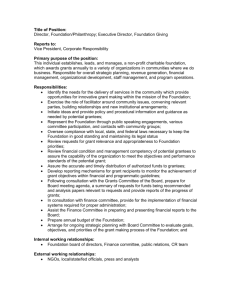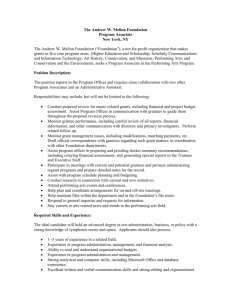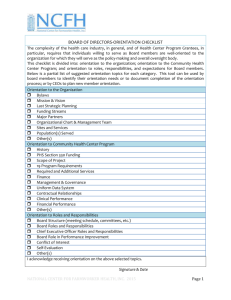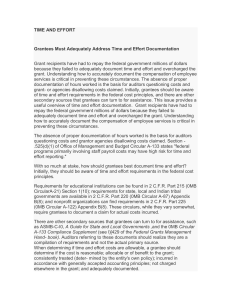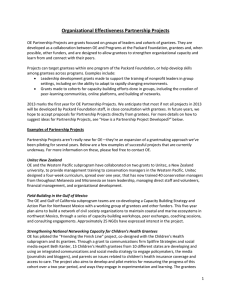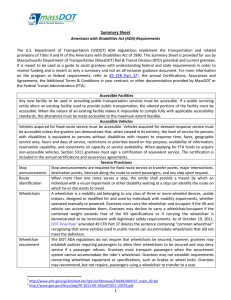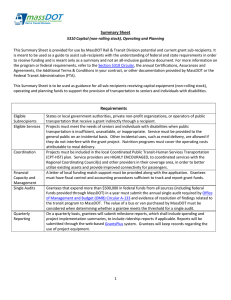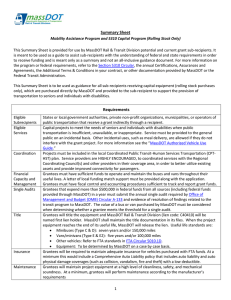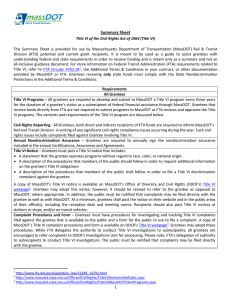Strengthening Public Health Departments through Process Improvement:
advertisement
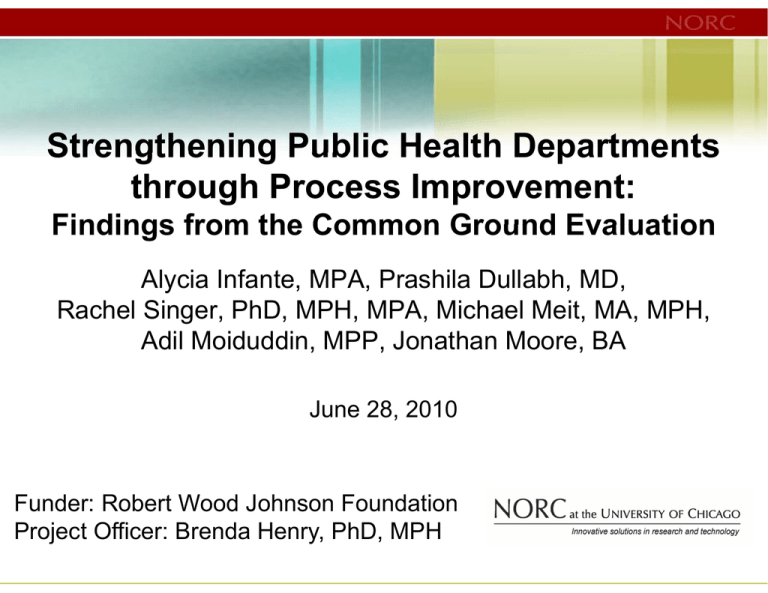
Strengthening Public Health Departments through Process Improvement: Findings from the Common Ground Evaluation Alycia Infante, MPA, Prashila Dullabh, MD, Rachel Singer, PhD, MPH, MPA, Michael Meit, MA, MPH, Adil Moiduddin, MPP, Jonathan Moore, BA June 28, 2010 Funder: Robert Wood Johnson Foundation Project Officer: Brenda Henry, PhD, MPH The Need for Process Improvement in Public Health • The role of health departments: – Address population health through disease surveillance, immunizations, health education, preparedness planning, etc. • The challenges: – Health departments are disparately organized – Lack of standardization in programs and processes – Barriers to information sharing • The need: – Standard models and practices to improve performance 2 Common Ground: Transforming Public Health Information Systems y • Three-year, $15 million RWJF initiative • Uses process improvement methods from the informatics field • Four-year independent evaluation – Did the g grantees accomplish p the p program g g goals? – What were the grantees’ experiences? – What is the p perceived impact p of Common Ground on public health agencies? – What is the potential for replication of Common Ground? 3 C Common G Ground d Methodology M th d l Business Process Analysis Think How do we do our work now? Business Process Redesign Rethink How should we do our work? Requirements Definition Describe H How can an information system support our work? Source: Public Health Informatics Institute. (2006). Taking Care of Business: A Collaboration to Define Local Health Department Business Processes. Decatur, GA: Public Health Informatics Institute. 4 Common Ground Grantee Processes • • • • • • • • • Data collection and management Appointments and referrals C Community it h health lth assessmentt Epidemiological research Implementation of public health interventions Risk communication Electronic medical records C di ti off community Coordination it partners t Post-preparedness event analysis 5 Evaluation Methods • Qualitative Methods – Document reviews – Focus groups – Telephone interviews – Site visits • Quantitative Q tit ti Methods M th d – Post-initiative surveys – Analysis of health department characteristics 6 Preliminary Findings: Benefits to Grantees • Improved understanding of overall operations and processes • Increased collaboration with internal and external t l stakeholders t k h ld – Between different departmental divisions such as public bli health h lth and d IT – Between state and local health departments • Culture change • Preparing agencies for health department accreditation 7 Preliminary Findings: Implementation p Challenges g • External forces and competing demands – Budget shortfalls (economic downturn 2008) – H1N1 (2009) • Lack of buy-in from staff • Technical terminology – “Business” language • Steep learning curve 8 Preliminary P li i Findings: Fi di Lessons Learned • Leadership/management buy-in is important • Grantees tied Common Ground to a compelling agency issue to secure staff buy-in buy in • All stakeholders need to be involved • Emerging issues may offer opportunities for performance improvement as processes are less entrenched 9 Summary and Implications for Public Health Practice • Common Ground funding provided the impetus for grantees to think about their processes • Methodology may be a tool to help agencies to engage in i quality lit iimprovementt and d prepare ffor accreditation • Products/ methodology may be useful for other agencies • Implementation in other agencies may be resource intensive 10 Alycia Infante NORC at the University of Chicago infante-alycia@norc.org 11
